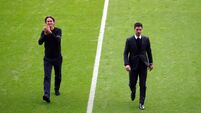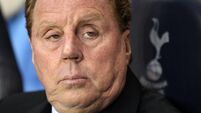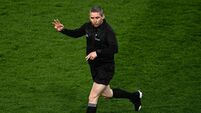Could the Dutch drop van Persie?
The contrasting ways the Netherlands and Germany handled that pressure on Saturday reinforced the ancient stereotypes about their football that we thought had become obsolete.
On Friday, Germany’s assistant coach Hansi Flick informed a press conference in matter-of-fact tones that Germany were favourites to win the tournament. He didn’t try to evade it, he didn’t laud Spain or any other team, he simply said that this pressure was something Germany had to cope with.














